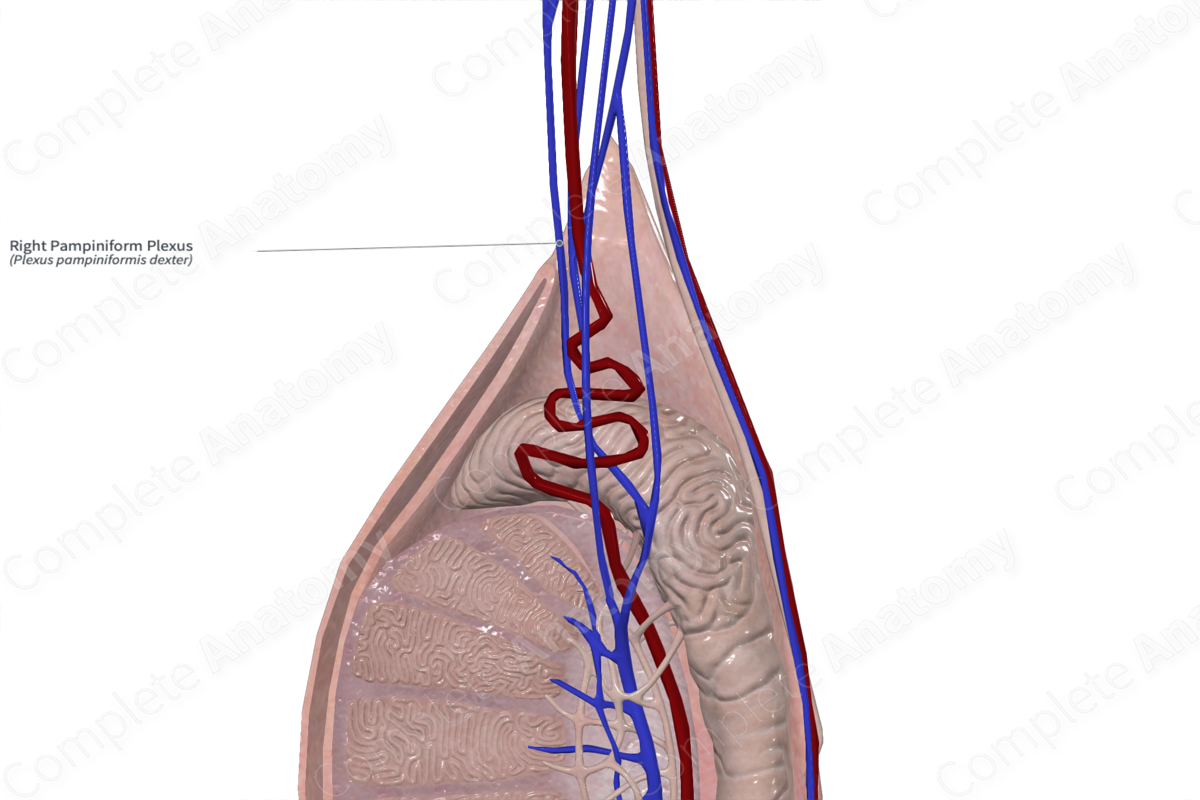
Quick Facts
Origin: Venous network originates in testes (males) or broad ligament (females).
Course: Veins in the plexus unite to form a single testicular vein (males) or ovarian vein (females).
Tributaries: Small spermatic veins (males) or small tubal ovarian veins (females).
Drainage: Testes and epididymis (males) or ovaries and uterine tubes (females).
Origin
In males, the pampiniform plexus is formed from the union of multiple spermatic veins that surround the testis and epididymis.
In females, the pampiniform plexus is formed from tubal branches from the ovarian veins, within the mesovarium of the broad ligament and suspensory ligament of the ovary.
Course
In both males and females, the pampiniform plexus drains into the gonadal veins (testicular/ovarian veins). The plexus is much larger in males than it is in females.
In males, the plexus runs anterior to the ductus deferens, through the superficial inguinal ring and traverses the inguinal canal. The veins of the plexus unite to form the testicular veins. The right testicular vein drains into the inferior vena cava, while the left testicular vein drains into the left renal vein.
In females, the tubal branches of the pampiniform plexus are located within the mesovarium and the suspensory ligament of the ovary. The plexus drains into the ovarian veins. The right ovarian vein drains into the inferior vena cava, while the left ovarian vein drains into the left renal vein.
Tributaries
In males, the pampiniform plexus receives small spermatic veins. In females, the pampiniform plexus receives tubal branches from the ovarian veins.
Structures Drained
The pampiniform venous plexus is much larger and is more functionally important in males than in females. In males, the pampiniform plexus surrounds and drains the spermatic cord, testis and epididymis. For normal spermatogenesis to occur, the temperature of the testis has to remain at approximately 3 °C lower than the abdominal body temperature. This is achieved, in-part, by a counter-flow heat exchange system, between the pampiniform plexus veins and the testicular artery (Standring, 2016).
In females, the pampiniform plexus is a vine-like structure that drains the ovaries and part of the uterine tubes into the left and right ovarian veins.
List of Clinical Correlates
- Varicocele
References
Standring, S. (2016) Gray's Anatomy: The Anatomical Basis of Clinical Practice. Gray's Anatomy Series 41 edn.: Elsevier Limited.
Learn more about this topic from other Elsevier products
Plexus

Visceral plexuses are a network of nerve fiber and ganglia surrounding organs of the abdomen and pelvis region that convey sympathetic, parasympathetic, and visceral afferent input.



